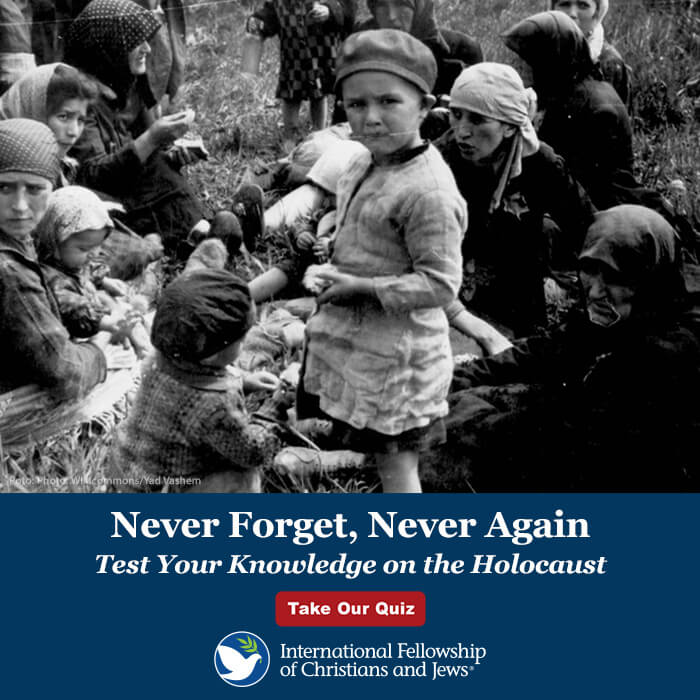Sudan’s civil war has forced 5 million people to flee their homes. Many of them are helpless children. Thousands of Sudanese orphans have come to the United States in the last two years. Many of them are Christians who were horribly persecuted by Muslims.
Two years ago, at age 17, Gabriel Atem had never flipped on a light switch, never seen a television, never used a telephone, never ridden in a car, never seen a can opener or a fork.
Then Atem, along with 12 other boys dressed in similar white T-shirts and blue sweat pants, waked from his first plane ride after landing in Seattle and stepped into a new world, one with TV remotes, microwaves and cell phones. A woman waiting for them to arrive gave one shivering boy her coat.
They arrived without money or luggage. A few carried Bibles. They all brought school papers folded neatly into a small knapsack they had carried from Kakuma, a refugee camp in northern Kenya.
“It was all so strange,” Atem says. “We had come to America. Wow. This was wonderful.”
That night Atem slept in a room by himself for the first time in his life.
Remarkably, Atem has adapted to his new home–as have the other 3,800 Lost Boys of Sudan who have come to America in the last two years. He’s gone from grass huts, open fires for cooking and bare feet to a ranch-style home, gas stove and Nikes. Some of the orphans of a 19-year-old civil war that has killed 2 million and forced another 5 million to flee their homes will graduate from high school in June. Atem will be one of them.
“They were happy and scared when they first arrived,” says Mary McCarthy, who with her husband became foster parents for Atem and two other Lost Boys. “Gabriel had nightmares when he first came. But not anymore.”
Sudan, the largest country in Africa and approximately the size of the United States east of the Mississippi River, has the largest displaced population in the world. It has produced 11 percent of the world’s uprooted people, all casualties of the bloodiest war since World War II.
In the last two years, the Lost Boys, a nickname given them by refugee workers, have found homes across the United States, finding rescue in cities such as Boston; Atlanta; Dallas; Seattle; Rochester, New York; Tampa, Florida; and Kansas City, Missouri. Two hundred landed in Grand Rapids, Michigan–the largest resettlement area. Another 130 went to Salt Lake City, the second largest.
And everywhere they went, they needed people like the McCarthys, who had two children of their own yet opened their home to three teenagers who had never slept in a bed with a mattress, sheets and pillow.
“It sounds like you have to give so much,” McCarthy says. “But you know, we’re the ones who have received so much. They have been a blessing.”
The refugees, all coming from a slumlike refugee camp in Kenya, have been resettled in 28 states by 10 resettlement agencies that work with the U.S. government. Christian agencies helped in the resettlement, finding homes, work and places for the refugees to go to school.
About 500 of the Lost Boys were under the age of 18 when they arrived. Most are orphans 14 to 25 years old. Many, such as Atem, were placed in foster families or in homes run by churches. Those older than 18 received help finding jobs, education and housing.
“What is so astonishing is there is such a sweetness about them,” says Betsy Higley, program manager for the Catholic Community Services in Tacoma, Washington, which helped 30 Lost Boys resettle in the Northwest. “After all the horror they’ve been through, there’s a joy there. That’s Jesus.”
‘Chosen by God’
There are 100 Lost Boys who resettled near Seattle across an area stretching 100 miles from Everett to Centralia. Sixty of them were under 18 and were placed in high schools.
“Almost all of them feel they were chosen by God,” Higley says. “They feel special because they made it. They feel they are here because of God. They go to church every Sunday, read their Bibles. They draw strength from their faith.”
They have also adapted to a modern world. Atem is a senior in high school, runs on the school’s track team, works at a grocery store and is getting mostly B’s on his report card. He plans to attend college. “I want to be a doctor,” says Atem, who speaks seven languages.
“They do homework for however long it takes, sometimes into the wee hours,” McCarthy says. “Education is very important to them.”
Their success in the classroom after just two years in the United States has surprised many. In the Kenya refugee camp, where Atem lived nine years, school was held in a grass hut, a teacher sometimes used charcoal to write on the backs of discarded cardboard boxes, and students wrote math problems in the dirt because there was no paper.
“We know education is very important,” Atem says.
Since coming to Yelm, a small rural town 20 miles south of Tacoma, Atem has enjoyed three meals a day, electricity, indoor plumbing, new clothes, pizza and a driver’s license. But only two months after buying a used car for $1,300, Atem wrecked his car and injured his shoulder when he swerved to miss another car.
“He was very disappointed when he wrecked that car,” McCarthy says. “He was very proud of that car.”
Despite crude living conditions in the refugee camps that included no electricity, running water or bathrooms, and although they had no parental supervision there, they have a moral compass that steers them from trouble. Higley says none of the Lost Boys who have come to Washington have gotten into trouble with the police or at schools.
“Since they grew up without parents and families, it’s hard to understand where they got this moral code,” Higley says. “But they have it.”
When McCarthy first read about the plight of the people in warring Sudan, she wanted to help. After an inner struggle, she and her husband agreed to take in three 17-year-old boys from Sudan, becoming their foster parents as they help them finish high school.
“First, it was just a feeling I had,” McCarthy says. “So, I prayed about it. My husband had questions about it. It was a big challenge. But this was something I really thought God wanted us to do.”
It’s been a cultural adjustment for the Lost Boys, many of whom are from the Dinka tribe, where men traditionally work with the cows in the fields and don’t do chores around the home. McCarthy says bridging that cultural difference hasn’t been without some humorous moments.
“When they got here, they didn’t understand that men–boys–pitch in and help,” McCarthy says. “In Africa, the women did everything around the home. Cook. Clean. Pick up. But the boys have learned to do their chores. They do dishes, clean the bathroom, their bedrooms and do the laundry.”
Atem says: “Life is pretty good. But a little confused. Still confused.”
War Orphans
The civil war reached Atem’s village in southern Sudan in 1988, five years after the war had resumed. When raiders attacked Atem’s village, he fled with hundreds of other young boys, beginning an incredible 12-year odyssey that eventually brought him to the United States.
He’s been chased on horseback by Sudanese soldiers, stalked by lions hidden in the tall savanna grass, and hunted by crocodile while swimming the Gilo River to reach Ethiopia. He watched many starve to death as he’d eat handfuls of clay or stripped bark as he walked from Sudan to refugee camps in Ethiopia, and to Kenya in 1992 when war broke out in Ethiopia.
In 1999, a door opened for the Lost Boys when the United Nations High Commissioner for Refugees and the U.S. government agreed to send 3,800 boys to the United States because going back to Sudan was not an option for them. Many of the Lost Boys who have come to Seattle share the same birth date: January 1. It’s the date given to displaced people who have no birth records and don’t know their birth dates.
Atem doesn’t have pictures of his parents. He has only memories, and those are fading. He can see his father, Abrahm, and his mother, Amour, in his mind, but he doubts they are alive. His village no longer exists. His people are scattered. For now, he won’t go back to Sudan.
“It’s not safe to go back,” Atem says. “I won’t go back as long as there is war.”
The war in Sudan is between northern and southern forces; light and dark skinned peoples; Muslims and Christians. Looting, massacring and enslaving are the strategies of the Sudanese army. Frequent air raids have wiped out villages and flattened hospitals, schools and churches.
World Relief, the only evangelical refugee resettlement agency sanctioned by the U.S. government, recently criticized lower admission caps that have been set on refugees. As a post-9/11 measure, President Bush signed the annual “determination policy” in October, shrinking the admissions count from 70,000 to 50,000. But only about 25,000 are actually expected to receive admission.
“That is extremely low,” Higley says. “It’s become much more difficult to gain access into the United States.”
No more Lost Boys have entered the country since April 2001. There were Lost Boys on the waiting lists before the terrorist attacks against the United States in September 2001, but not as many as the 3,800 who have already come. None are expected to gain admittance any time soon.
“I still get phone calls from people saying they’d like to house a Lost Boy,” Higley says. “We’d love to get some more.”
Families wanting to become foster parents for refugees need to go through an 18-hour training class, become CPR qualified and fill out lots of forms.
“It can be discouraging,” says Molly Daggett, program manager for the Lutheran Social Services in Seattle. “But we always need families who are willing to make that kind of commitment.”
Now, for the first time since Atem was a child, he has a family. He calls his foster parents Mom and Dad. This is his home. He is no longer afraid. He is at peace not only with God, but also with his neighbor.
For 12 years, he wandered as one of the Lost Boys. But he no longer feels lost. He is no longer an orphan of a war. Because of people like the McCarthys, a couple who found a mission field in their own community, the Lost Boys no longer are running.
“I am glad to be here,” Atem says. “They call us the Lost Boys. But we are found here in America. Here it is safe. There is no war here.”
Ravaged by Islamic Jihad
Christians in southern Sudan have been caught in the crossfire of a 19-year-old war fueled by radical Islam.
Peace talks that include a proposal by Sudan’s southern rebels to share power began in October, bringing hope of an end to a bloody, 19-year civil war that has killed more than 2 million people. But the world still waits to see whether Sudan’s government will stop the killing in the south, a region that is predominantly Christian.
“Since we have been disadvantaged for a long time, the south will seek a greater say in the government,” says a spokesman of the Sudan People’s Liberation Movement (SPLM). The SPLM also wants the Sudanese capital of Khartoum to be free of Islamic law.
In hopes of prodding the Sudanese government, President Bush signed legislation in October that threatens sanctions against Sudan if President Omar Al-Bashir fails to negotiate in good faith. The measure formally condemns human-rights violations and accuses the Sudanese government of using food as a weapon.
Known as the Sudan Peace Act, the legislation mentions sanctions such as a downgrade of diplomatic relations, a United Nations arms embargo and efforts to deny use of Sudan’s oil revenues. The bill also authorizes $300 million in support to be given to the SPLM over three years for peace efforts. It is money Congress would have to provide in separate legislation.
“I’m sure the Sudanese government is worried about that,” says Gary Lane, news director of The Voice of the Martyrs and an expert on the Sudan situation. “The Bush administration has to keep the pressure on. The British have to keep the pressure on. That’s the only way this is going to work.”
Lane says U.S. military actions against the Taliban in Afghanistan gave credence to America’s threats to Sudan. “Al-Bashir isn’t stupid,” he says. “He sees the value of trying to work out a peace agreement. I’m skeptical, but hopeful.”
In January 2002, a six-month cease-fire proposed by the United States began and was renewed in July. However, 100,000 people in southern Sudan were chased from their homes as bombings increased around the oil fields during the summer. “This war is partially about national resources,” Lane told Charisma. “The north wants the south’s oil. But basically this war is about jihad.”
In 1998, Lane, then working for the Christian Broadcasting Network, interviewed SPLM prisoners who were students from the north. “I asked them what they were doing here,” Lane says. “They said they were told by the government that they could not get their degrees if they didn’t go south and wage jihad on the Christians.”
In October 2001, a senior Sudanese official vowed that his government would continue raising the banner of jihad, or holy war, against southern rebels. “The jihad is our way, and we will not abandon it and will keep its banner high,” Vice President Ali Osman Taha told a brigade of mujahedeen fighters headed for the war front.
“We will never sell out our faith and will never betray the oath to our martyrs,” says Taha, adding that Islam is “absolute justice.”
To counter that movement, Lane says the United States must maintain political pressure to force a peaceful settlement.
He adds: “The people there ask people of the United States to pray for peace.”
Why I Stayed in Sudan
I was one of the ‘Lost Boys’ of Sudan, but I chose not to flee my country so I could win my people to Jesus.
My name is Santino Bol. As a 12-year-old, I walked hundreds of miles to Ethiopia to get schooling. Some of my companions died of thirst along the way. At one point, I had to drink my own urine to survive.
In Ethiopia, a friend told me about Jesus Christ, the Son of God, who came to save mankind. I accepted Him as my Savior and started to go to church. From that time on, I was no longer a “lost boy” spiritually. I was now “found” through God’s amazing grace.
When we were expelled from Ethiopia in 1990, I wandered together with the other Lost Boys to the Kakuma Refugee Camp in Kenya. After almost two months there, I knew I had to leave. God was calling me to share the good news of Jesus Christ with my own people.
Most of them knew nothing about Jesus. They worshiped the Dinka tribal god Dengdit.
I did not want my family and other members of the Dinka community to die without experiencing the love of Christ. I went to Nairobi and studied the Bible. After ordination, I returned to my home area of Marial Bai to plant churches.
Less than 10 years ago, I founded my first congregation with just a handful of faithful Christians. Since then, thousands of people have come to know the Lord. I now supervise 42 congregations with 17,500 members.
This work has not been easy. The area where I minister has been devastated by slave raids and man-made famine. Many of my relatives, neighbors and church members have been killed or enslaved. Arab slave raiders have burned many of our churches.
One Sunday, they attacked the village Tiomthiet at 7 a.m. Some people were already at church praying. I was in a nearby hut getting ready for worship. Suddenly I heard gunfire, saw horses and smelled smoke. I ran outside and saw Arabs with guns trying to take the Sunday school children.
That time they didn’t catch any young ones from the church, but they did capture one of my evangelists, David Deng. They tied him to a horse’s tail and made the horse run under the trees. One of David’s arms was severed and the rope around his neck cut his throat. He was killed. I managed to escape.
My church workers have no salaries, cars or pension funds. A lot of them do not even have shoes or trousers without patches.
The more fortunate may have a bicycle for visiting outlying congregations or preaching stations. Others walk barefoot. Some have died a martyr’s death.
Since the team from Christian Solidarity International (CSI) started working here in 1995, many women and children have been freed from slavery, including members of my church. Some of the recently freed non-Christian slaves say they want to follow Jesus.
When our people are enslaved by the Arabs, they are forced to live like Muslims. There are still many of our people enslaved in the north, and thousands of already freed slaves need a Christian education.
Santino Bol
As told to John Eibner, executive director of Christian Solidarity International (CSI). Charisma is helping CSI’s efforts to aid the Christians of Sudan. Send your tax-deductible gifts to Christian Life Missions, P.O. Box 952248, Lake Mary, FL 32795-2248, Attn: Persecuted Church in Sudan.
Jesus Cares for the Foreigner
Christians have helped Sudanese refugees by adopting kids, airdropping supplies and praying for peace.
Mary McCarthy and Dan Secrist read with terror about the plight of the people in warring Sudan. They both wanted to help. McCarthy took in three 17-year-old boys from Sudan and became their foster mother. Secrist joined a team from Voice of the Martyrs (VOM) and flew to Sudan, airdropping and trucking supplies to remote, battle-torn areas where no other relief groups dared to go.
Both were moved to action. Both took different routes yet reached the same result.
Secrist, an Assemblies of God pastor in the Seattle area, was part of a team that dropped food into areas that were regulated as no-fly zones by Sudan’s government. He also helped distribute medicine and survival packs.
“What was so interesting was what so many asked us for,” Secrist says. “They wanted Bibles. Here are these people without adequate clothing and food, and they asked for Bibles. It was amazing.”
An international team of 35 people has launched The Refugee Highway Partnership to respond to refugees’ needs and encourage others to be helping hands to the world.
Brian O’Connell, director of international partnership services of the Interdev ministry, called the new partnership “potentially one of the most significant collaborative initiatives launched over the past several years.”
“The opportunity for ministries to participate in coordinated efforts to reach refugees with the gospel cannot be understated,” he says.
Gary Lane, of VOM, urges American Christians to pray for Sudan and then take action. “Maybe prayer will lead to writing a letter. For others it will mean sending blankets. For others it might mean sending food. Maybe some will go themselves.”
For more information about how to help Christians in Sudan, contact Voice of the Martyrs at (800) 747-0085 or visit their Web site at www.persecution.com. Or contact Christian Solidarity International at (888) 676-5700 or visit their Web site at www.csi-int.org.
Gail Wood is a Seattle-based writer and frequent contributor to Charisma.







Leave a Comment
You must be logged in to post a comment.